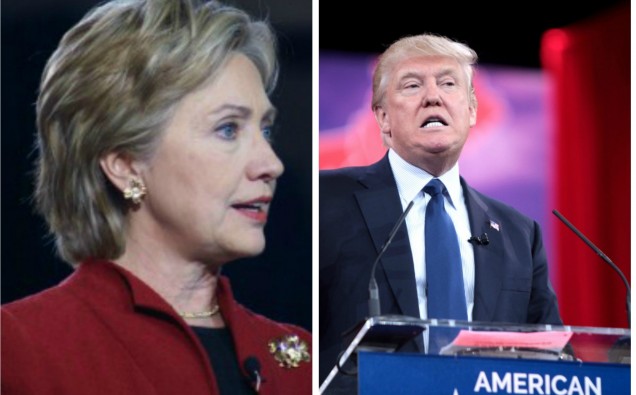
Around three weeks before the presidential election, Hillary Clinton and Donald Trump appear to be maintaining favorable standings among their constituencies, with the Democratic candidate having an overall edge.
After a turbulent week for Trump, two latest polls suggest differing trend lines for the candidates and the parties.
Clinton is up by double digits nationally, according to a new NBC News/Wall Street Journal poll amid a spate of scandals rock Republican Donald Trump’s campaign.
Earlier, a poll by The Washington Post and ABC News showed Hillary Clinton leading Donald Trump nationally by four points.
It now seems, the third and last presidential debate on October 19 might tip the balance crucially.
The NBC/WSJ poll, which was conducted Oct. 10-13 — entirely after the second presidential debate — finds Clinton up 11 points from her Republican rival in a four-way match up, with 48 percent to 37 percent among likely voters. Libertarian nominee Gary Johnson is at 7 percent and Green Party nominee Jill Stein at 2 percent.
However, in a head-to-head match, Clinton is up 10 percent from Trump, 51 percent to 41 percent.
According to pollsters, there is a margin of error of 3.1 percentage points, with 1,000 registered voters having been contacted via cell phones and landline phones. The margin of error increases to 3.3 percentage points among the poll’s 905 likely voters.
The poll finds Clinton holds a 20-point lead with female voters, 55 percent to 35 percent.
Despite a scandal around 2005 video of Trump boasting of sexual assaults against women, just 32 percent say that the video disqualifies Trump from being president and believe that he should withdraw from the race, according to the poll.
Findings suggest among male voters, Trump is ahead by three points, 48 percent to 45 percent.
But the Democratic nominee’s double-digit lead doesn’t transfer to down ballot votes, according to the poll.
According to the poll, among registered voters, 46 percent prefer a Democratic-controlled Congress, while 44 percent want a Republican-controlled Congress. That number changes slightly among likely voters, with 47 percent wanting a Democratic-controlled Congress and 44 percent wanting a Republican-controlled one.


















